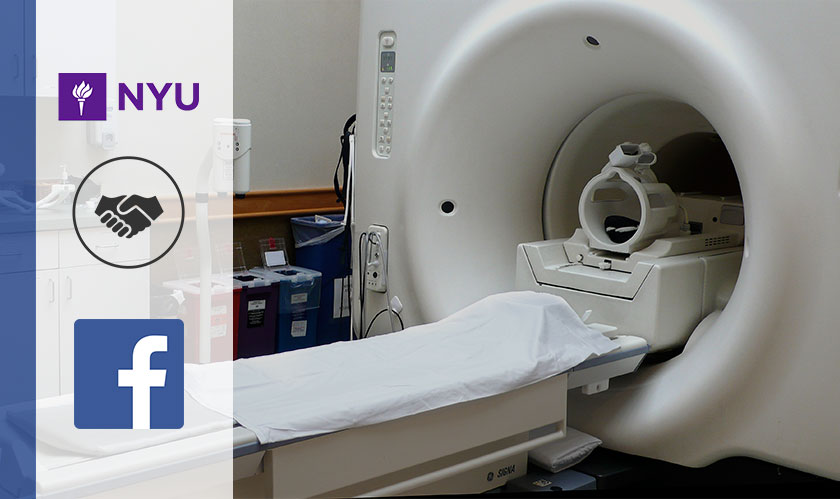If you’ve ever needed to get an MRI then you know how painfully tedious they can be. Not to mention claustrophobic. But thanks to Facebook it may soon be possible to get MRI results in a fraction of the time.
Engadget explains how it works:
“Magnetic Resonance Imaging (MRI) has been providing physicians with vital insights into patients’ insides since their development in the 1970s. However, the machines operate at a glacially slow pace and require the patient remain perfectly still. This makes them ill-suited for use with small children (who’d have to be sedated) and people experiencing time-critical medical emergencies such as strokes. Now, after two years of research, teams from Facebook AI and NYU Langone Health have developed a neural network that can cut the amount of time people have to spend in an MRI machine from more than an hour to just a few minutes.
The network, dubbed fastMRI, shortens the scanning time because it only requires a quarter as much data to resolve the image. MRIs work by generating an intense, localized magnetic field. When the atomic nuclei of certain elements, like hydrogen, will absorb radio frequency (RF) energy when exposed to the magnetic field and then reemit it as a measurable RF frequency.
‘If you’ve been sitting in an MRI, you’ve been hearing that buzzing sound it makes when it gathers data’, Dr. Dan Sodickson, a researcher at NYU Langone Health, told Engadget, ‘it is the raw data from which a magnetic resonance image is derived… and that raw data actually looks like this fascinating starburst’…That k-space data is stored in temporary storage and once it’s full, the scan is complete and the data undergoes a Fourier transform to actually plot out the spatial frequency and generate an MRI image…
But rather than wait for k-space to fill up, fastMRI only needs 25 percent of the data that traditional MRI machines would require to generate those same images… To be clear, this neural network isn’t analyzing existing MRI images at accelerated rates, it’s actively generating them from the raw data itself and they’re effectively identical to traditional scans.”
As someone who is constantly in need of getting an MRI this is great news. Hopefully, it also brings down the cost of getting one so that insurance companies will actually approve them.

Is FastMRI the Greatest Idea Ever?

Leave a comment